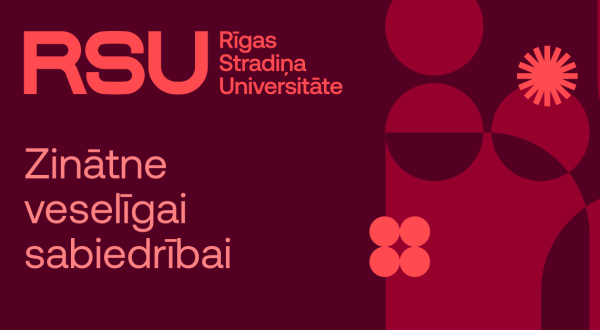Senior citizens in the Baltic States get access to activities led by certified instructors
After two and a half years, the project Age Is Not an Obstacle, funded by NordPlus Adult, has come to an end. The project was aimed at raising the standard of living for senior citizens in the Baltic States and encouraging them to lead a more active lifestyle after retirement.

The project was implemented by the Latvian Pensioners’ Federation (LPF), Rīga Stradiņš University (RSU), the Association of Estonian Pensioners’ Unions, and the Lithuanian Pensioners’ Union Bočiai. The project resulted in the development of various training programmes. These programmes have resulted in a number of certified instructors (52 in Latvia, 40 in Estonia and Lithuania each), who have already started conducting classes for seniors in all three Baltic countries.
Global life expectancy has more than doubled over the last 100 years: in 1913, the average life expectancy was 34 years, while now, a century later that number has increased to 71. This figure is even higher in certain regions – according to UN data the average life expectancy in Europe is 77. The average life expectancy of the population in Latvia is also increasing. Consequently, matters related to improving the standard of living for seniors are becoming increasingly important.
‘We need to change our way of thinking – we have to talk not just about ageing, but also about continuity. We have to improve seniors’ knowledge of how to improve their physical, psychological, and financial well-being,’ points out Associate Professor Signe Tomsone, Dean of the RSU Faculty of Rehabilitation.
The following topics were the focus of the project during which instructors were educated in four modules:
- How to handle the adjustment period after you retire (including opportunities for social assistance and entrepreneurship to increase your income);
- How to maintain your physical health;
- How to maintain your psychological health and acquire new knowledge and skills;
- How to avoid and overcome loneliness.
The head of the project Mārtiņš Valters says that the next steps are in the hands of the certified instructors. These instructors’ contact information can be found on the project’s website: www.vecumsnavskerslis.lv. ‘We are proud of the fact that these trained instructors are not only from Riga, but from all over the country – Krāslava, Balvi, Riebiņi, Kuldīga, and other parts of Latvia. The newly acquired knowledge will continue to resonate in their regions,’ notes Valters.
Zinaīda Logina, a former journalist for the Balvi newspaper Vaduguns, is already using the knowledge she learned from the project at various events organised by the Balvi Pensioners’ Union as well as several Nordic walking classes taking place in Viļaka. Work group leaders and project partners discussed how to best implement their new knowledge after the project ended. ‘Partners expressed a desire to develop this project further by involving senior schools in Latvia and third-generation universities in Lithuania and Estonia to establish a cooperation network as well as new programmes and teaching materials,’ says Valters.
Related news
 Step towards athlete safety and fair competition: RSU researchers contribute to creation of largest microclimate data network at Olympic GamesConsolidation, Sports research, Public Health
Step towards athlete safety and fair competition: RSU researchers contribute to creation of largest microclimate data network at Olympic GamesConsolidation, Sports research, Public Health


